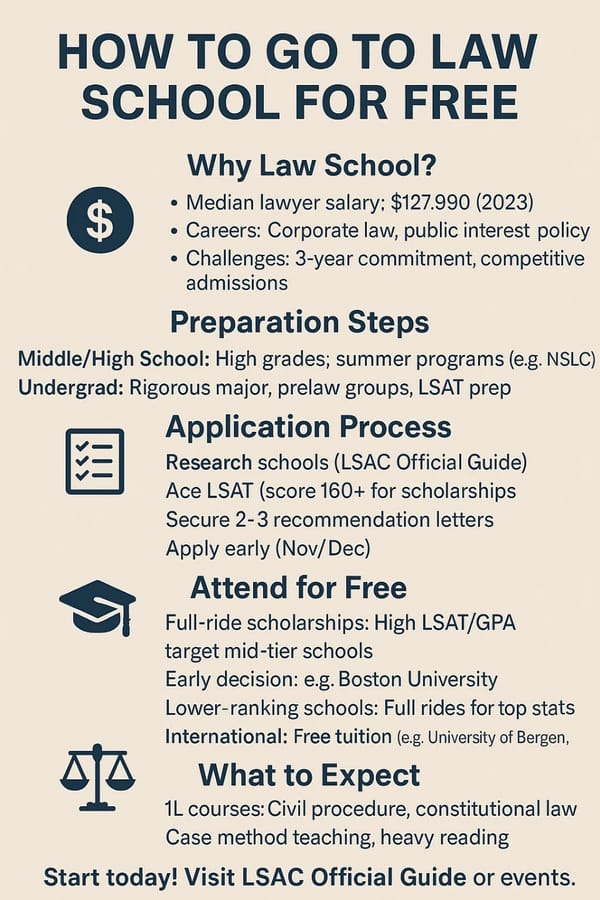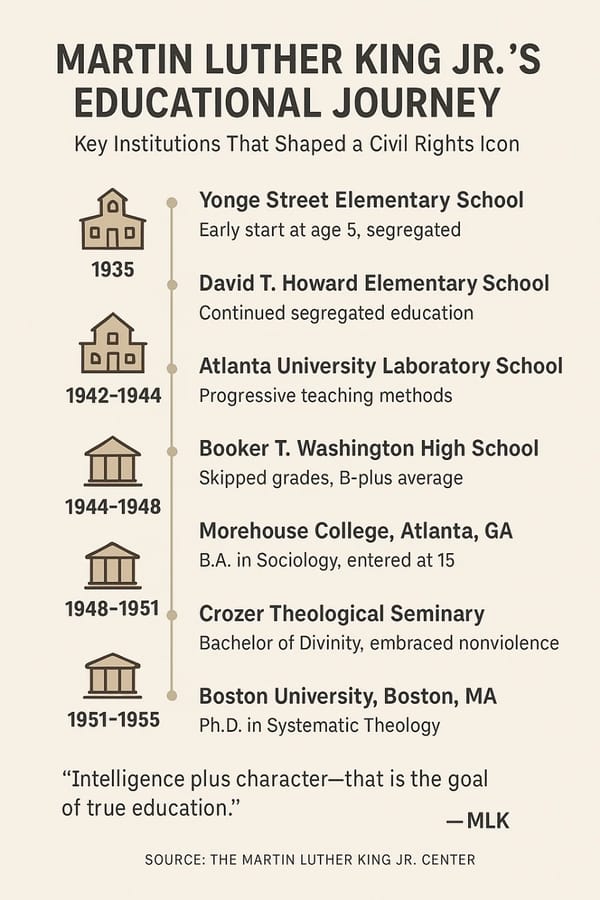Should I Go to Law School? This resource presents a complete framework to help you make an informed decision about law school.
The decision to attend law school combines personal passion with practical considerations while requiring extensive long-term planning and impacts life direction. Do you feel attracted to careers in justice advocacy, problem-solving roles and working toward a prestigious professional position? Do concerns about high costs and intense competition make you reluctant? The article explores the question Should I go to law school? in depth The article examines legal education reasons while detailing the application process and career outcomes and sharing personal stories to guide your decision-making. Expert opinions combined with personal experience will help us present tools such as the Should I Go To Law School? Quiz to assess your legal career fit. We will thoroughly analyze all the necessary information to empower your decision-making process.
Why Consider Law School? Understanding Your Motivation
Law school draws students from various backgrounds who desire to make social changes, enjoy intellectual challenges or seek dynamic career options. The American Association of Law Schools commissioned a Gallup study which found that students considering law school have political and public service interests along with social change advocacy as their main motivations. People who seek to create real change find this element particularly appealing.
But passion alone isn’t enough. Law school alumna Jill E. Adams underscores the necessity of understanding your core motivation prior to making a commitment. She recommends students avoid pursuing law school merely on impulse or parental expectations while stressing that a profound personal purpose helps them endure challenges. The Should I Go To Law School? Quiz, which has received over 181,611 attempts can help you evaluate your objectives and preparedness for law school.[1] The quiz evaluates your aspirations and skills through targeted questions which provide a structured reflection framework.
Key Questions to Ask Yourself
- Have I identified a definitive reason to pursue a career in law? What drives you toward law—is it justice passion or intellectual curiosity or career ambition?
- Have I assessed my readiness to handle both the financial costs and time requirements of law school? A multi-year law school education requires significant financial investment.
- What career paths excite me? Do you envision your future in conventional legal positions or do you aspire to work in business sectors or governmental and advocacy roles?
Evaluating these questions reveals if pursuing law school matches your future goals.
The Pros and Cons of Law School: A Balanced Perspective
This section explores both positive aspects and negative aspects of law school from an impartial standpoint.
Law school provides exceptional opportunities yet presents significant difficulties. This analysis provides you with comprehensive information about the advantages and disadvantages of your options through data-backed expert insights.
The Pros: Why Go to Law School?
-
Employment Flexibility Across Industries
A law degree provides access to career opportunities outside the traditional legal field. With their negotiation and critical thinking abilities graduates from law school can find employment opportunities in government sectors as well as business, entertainment, sports and politics. According to Gallup research students find the ability to use their law degree in various fields particularly attractive.[2] -
Enhanced Credibility with Employers
Law school develops research capabilities alongside public speaking and analytical reasoning skills which enhances the employability of its graduates. Multiple sectors including consulting and finance value these transferable skills.[2:1] -
Intellectual Growth Through the Socratic Method
The Socratic method forms a fundamental part of legal education by pushing students to develop critical thinking abilities and to present persuasive arguments during stressful situations. This intense method cultivates legal writing and advocacy expertise while deepening your knowledge of the law.[2:2] -
Diverse Job Opportunities
Beyond practicing law, J.D. holders find successful career opportunities within banking, federal law enforcement, HR departments, and government positions. According to Forbes Advisor, law school graduates possess analytical and problem-solving skills that are highly valued in many industries.[3] -
Strong Earning Potential
The median annual salary for lawyers stands at $135,740 while the highest paid 10% of lawyers earn more than $239,200 annually. Starting salaries for entry-level public sector workers range from $57,500 to $63,000 but private sector jobs begin at $85,000 and reach $200,000 in top-tier companies.[3:1] -
Networking Opportunities
Through law school you establish connections with professors and peers while also expanding your network with alumni to build a strong professional base. Building these connections provides access to internships and clerkships as well as direct job opportunities.[3:2]
The Cons: Challenges to Consider
-
High Student Debt
The typical law school debt stands at $145,500 which presents a substantial financial challenge. Although income-based repayment options and Public Service Loan Forgiveness programs exist law graduates must still engage in meticulous debt management.[2:3] -
Evolving Job Market
Outsourcing developments together with new billing methods and work-life balance issues represent significant challenges for the legal field. Graduates from lower-ranked schools face uncertain job prospects because of current industry trends.[2:4] -
Significant Time Commitment
A law degree requires a minimum of 7 years of study time which includes 4 years for undergraduate education and 3 years for law school. Students typically devote more than 40 hours per week to law school studies which includes reading dense material at a rate of up to 100 pages each night.[3:3] -
Financial Investment
Tuition varies widely: The average annual tuition costs are $30,554 for public in-state students and $43,590 for public out-of-state students with private institutions charging $55,963 but these figures do not account for living expenses or textbooks.[3:4] -
Competitive Academic Environment
The study of law requires intense mental effort due to extensive work hours and high-pressure exams along with critical skill development in problem-solving, writing, and oral communication.[3:5] -
Salary Realities
Most 2022 J.D. graduates earned salaries between $50,000 and $90,000 although top earners achieved six-figure incomes. Within the legal market small segment large firms hold the majority of high-paying positions.[3:6]
Comparative Table: Pros vs. Cons
| Aspect | Pros | Cons |
|---|---|---|
| Career Opportunities | The job market creates flexible career options in law and business | Faces challenges from outsourcing and work-life balance concerns |
| Financial Impact | The median lawyer salary stands at $135,740 while top earners make above $239,200 | Prospective students face average law school debts of $145,500 along with tuition costs ranging from $30,554 to $55,963 per year |
| Time Commitment | The legal education journey takes three years to develop lifelong skills | Requires seven years or more of total commitment with study sessions of over 40 hours per week |
| Skill Development | Students need strong academic and interpersonal capabilities | To succeed in law school's competitive setting |
The table presents trade-offs to enable you to understand how rewards and challenges balance against one another.
Navigating the Law School Application Process
The law school application process follows a set structure yet demands attentive planning due to its rigorous nature. According to PowerScore after reviewing the law school application process it becomes clear that students usually decide to apply during their junior year take the LSAT in June of their senior year submit applications by January and receive decisions by May. Here’s a step-by-step guide:
-
Complete the Application
Compile all application components through the Law School Admission Council’s Credential Assembly Service (CAS). Applications must be complete for schools to review them which makes accuracy essential. -
Craft a Personal Statement
Develop a persuasive personal statement that emphasizes your distinctive characteristics and driving forces. This essay is your opportunity to showcase what makes you unique and why law school aligns with your goals. -
Secure Letters of Recommendation
Request letters from professors or employers who can vouch for your academic or professional abilities. Processing through LSAC can take up to 2 weeks, so submit requests early. -
Submit Transcripts
Send official transcripts from all undergraduate institutions to LSAC, which also takes about 2 weeks to process. -
Include LSAT Scores
Your LSAT score, a critical admissions factor, is automatically linked by LSAC. Aim to take the test early to allow time for retakes if needed. -
Upload a Résumé
Provide a one-to-two-page résumé detailing your academic, extracurricular, and professional experiences. -
Optional Essays and Addenda
Some schools require additional essays or allow addenda to explain specific circumstances, such as academic gaps or low grades.
Early applications, ideally by November or December, improve your chances due to rolling admissions.
Career Outcomes: What to Expect Post-Graduation
Understanding career prospects is essential when considering law school. According to the CEW Georgetown report, 89% of 2018 law school graduates found jobs within 10 months, with 71% in J.D.-required roles.[4] Litigators are in high demand, but outcomes vary by school prestige and geographic location.
Salary and Employment Trends
- Median Earnings: Four years after graduation, the median salary is $72,000.
- Top Schools: Graduates from the top 7 law schools often earn over $200,000 net of debt payments.
- Lower-Tier Schools: At 33 law schools, median earnings net of debt are below $55,000.
- Demographic Disparities: Female lawyers earn a median of $113,000, compared to $141,000 for male lawyers. Racial gaps include Asian American ($132,000), white ($131,000), multiracial ($125,000), Hispanic/Latino ($113,000), and Black/African American ($108,000).[4:1]
Table: Salary Outcomes by School and Demographics
| Category | Median Earnings |
|---|---|
| All Law Schools (4 years post-grad) | $72,000 |
| Top 7 Law Schools (net of debt) | >$200,000 |
| 33 Lower-Tier Schools (net of debt) | <$55,000 |
| Female Lawyers | $113,000 |
| Male Lawyers | $141,000 |
These figures highlight the importance of choosing a school wisely and planning your career path carefully.
Personal Stories: Insights from Law School Graduates
Personal experiences provide a human perspective on the law school journey. Here are three stories from graduates, shared via If/When/How:[5]
- Jill E. Adams: “Know your purpose deeply. Law school is challenging—without a clear ‘why,’ it’s easy to lose focus.” Her advice emphasizes the need for intrinsic motivation.
- Sara L. Ainsworth: “I faced pressure to join a private firm, but my passion was social justice. Support exists for non-traditional paths—seek it out.” Her story encourages aligning your career with your values.
- Farah Diaz-Tello: “I balanced marriage, a child, and pregnancy during law school. Remembering my ‘why’ kept me going through tough classes.” Her resilience is inspiring for those managing personal and academic demands.
These narratives underscore the importance of purpose, resilience, and alignment with personal goals.
Self-Assessment: Try the Law School Quiz
If you’re still uncertain, the Should I Go To Law School? Quiz, with over 181,611 attempts, is a valuable tool to clarify your decision. It evaluates your aspirations, skills, and preferences through targeted questions, providing personalized feedback to guide your next steps.[1:1]
Conclusion: Your Path Forward
Deciding whether to attend law school is a deeply personal choice that requires balancing passion with practicality. The rewards—career flexibility, intellectual growth, and strong earning potential—are significant, but challenges like high debt, a competitive job market, and a substantial time commitment demand careful consideration. Reflect on your core motivations, explore tools like the Should I Go To Law School? Quiz, and draw inspiration from the stories of graduates who navigated this path. Whether you choose law school or another route, ensure it aligns with your vision for a fulfilling future.
Call to Action: Take the quiz today to gain clarity on your path. Share your thoughts in the comments below or connect with current law students to learn more. Your journey starts with an informed decision—make it count.
Should I Go To Law School? Quiz. https://www.proprofs.com/quiz-school/story.php?title=should-you-go-to-law-school ↩︎ ↩︎
Should You Go to Law School Pros and Cons Shemmassian Academic Consulting. https://www.shemmassianconsulting.com/blog/should-i-go-to-law-school ↩︎ ↩︎ ↩︎ ↩︎ ↩︎
Is Law School Worth It How To Decide If Law School Is Right For You Forbes Advisor. https://www.forbes.com/advisor/education/law/is-law-school-right-for-you/ ↩︎ ↩︎ ↩︎ ↩︎ ↩︎ ↩︎ ↩︎
A Law Degree Is No Sure Thing Some Law School Graduates Earn Top Dollar CEW Georgetown. https://cew.georgetown.edu/cew-reports/law/ ↩︎ ↩︎
What We Wish Someone Had Told Us About Law School Before We Got There If/When/How. https://ifwhenhow.org/news/what-we-wish-someone-had-told-us-about-law-school-before-we-got-there/ ↩︎






